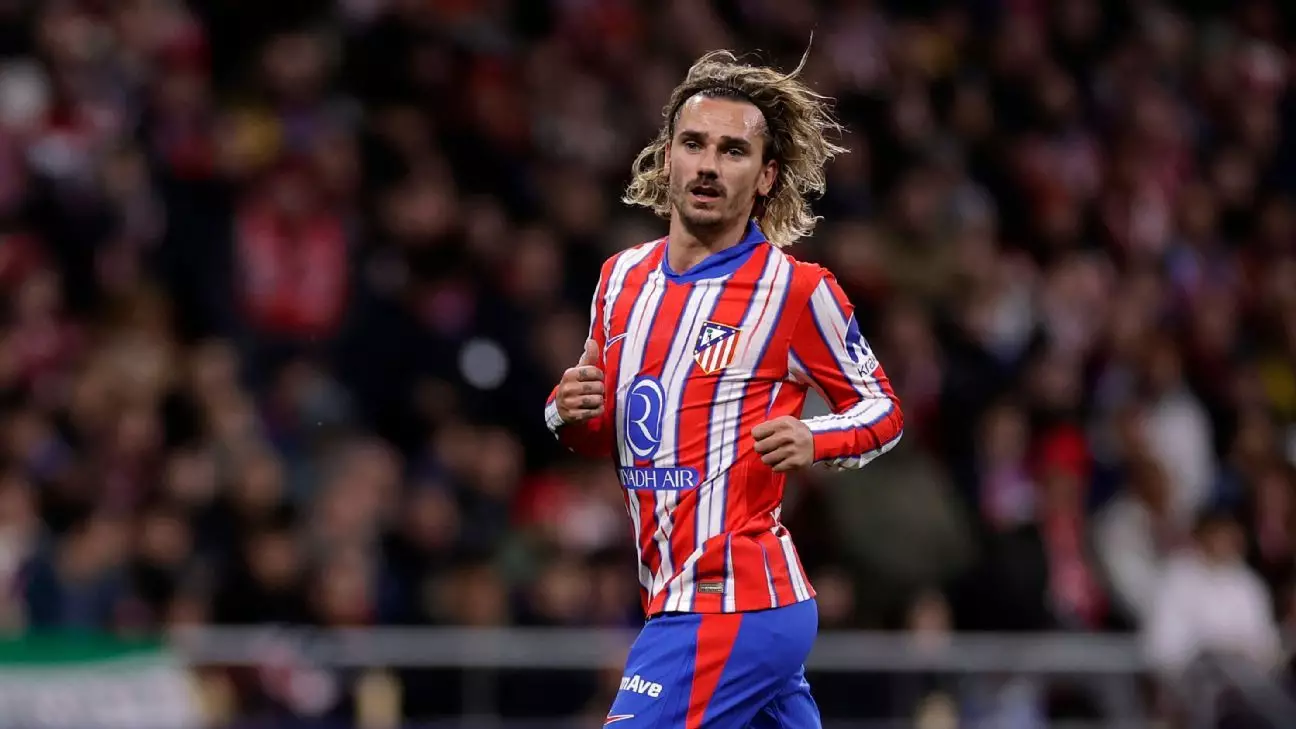Antoine Griezmann, the charismatic forward for Atlético Madrid, has recently taken a bold stance in a football environment where player transfers often overshadow loyalty. With whispers of a move to Major League Soccer (MLS) growing louder, Griezmann has decided to stay put at the Wanda Metropolitano. At age 34, when many players consider heading to leagues with less competitive rigor, Griezmann insists on honoring his contract for at least another season. This decision not only demonstrates his commitment to Atlético but also reflects the evolving landscape of football in which some players prioritize legacy and club loyalty over lucrative contracts abroad.
This choice, however, raises critical questions about the dynamics of sporting ambition versus personal goals. Griezmann’s impressive performance this season—scoring 16 goals and providing seven assists—suggests he still has a significant contribution to make. The player’s decision to delay potential offers from MLS requires keen introspection; he seems to believe that exploring international opportunities post-2026, when the soccer world will shift focus to the World Cup hosted in the United States, will bear greater fruit. This is a calculated risk, and while many players might be tempted by the allure of the MLS sooner, Griezmann’s steadfast temperament sets him apart, showcasing a blend of ambition and seasoned strategy.
AC Milan’s Dilemmas: The Price of European Football
Across the football landscape, AC Milan faces a potentially damaging scenario as they grapple with the uncertainty surrounding some of their key players, including the talented winger Rafael Leão. Reports suggest that if the Rossoneri fail to secure a spot in the Champions League, they may be compelled to let go of some prized assets. Leão’s current form, having contributed to 13 goals in 28 matches this season, places him in high demand; Barcelona reportedly has been keeping an eye on him. This situation highlights the frankly unforgiving nature of modern football—a realm where financial viability often dictates player retention rather than emotional attachments to a club.
Leão’s case serves as a poignant reminder of how success is intrinsically linked to budgetary constraints. It raises a dialogue on the sustainability of teams that have rich histories yet find themselves entangled in the web of financial peril. The notion that a player of Leão’s caliber could leave simply due to the club’s inability to field a competitive team in Europe is disheartening. The question mark surrounding the futures of other prominent players like goalkeeper Mike Maignan and left-back Theo Hernández amplifies this precarious position. It forces fans and stakeholders to consider what sacrifices might manifest should AC Milan’s European ambitions fall short.
Tottenham’s Benetancur: A Tug of War
In a parallel narrative, Tottenham Hotspur’s midfielder Rodrigo Bentancur finds himself at the center of interest from both Atlético Madrid and AC Milan. As the football community speculates, Spurs are said to be opening negotiations for a contract extension to fend off potential suitors. Bentancur, currently locked in until the summer of 2026, seems to be a linchpin for Tottenham; thus, the stakes are high.
The battle for players’ loyalty amidst lucrative offers from abroad is a growing trend. In a time when athletes are more aware of their market value, navigating these waters requires strategic foresight. If Spurs manage to secure Bentancur’s services for longer, it could set a precedent in football management—showing the importance of nurturing talent rather than succumbing to fleeting interests. It illustrates the importance of player relationships and organizational trust amidst a flurry of transfer activity.
Everton’s Pursuit: The Search for Stability
Meanwhile, Everton’s ambitions of fortifying its defense have led them to consider young centre-back Maxime Estève from Burnley. The inquiries regarding Estève reflect the ever-increasing need for clubs to cultivate a robust squad, particularly amidst potential departures of key defenders. At 22, Estève’s performance in the Championship has already made waves; the prospect of his transition to the Premier League adds an exciting dimension to the current transfer narrative.
However, Everton’s efforts are not without obstacles, particularly as they face potential competition from other clubs like West Ham United. The demand for emerging talent highlights a broader trend in football where clubs are increasingly investing in youth to build resilience over time. Here, as clubs maneuver for strategic advantage, one cannot help but appreciate the game’s relentless pace and the urgency of making the right move at the right time.


Leave a Reply